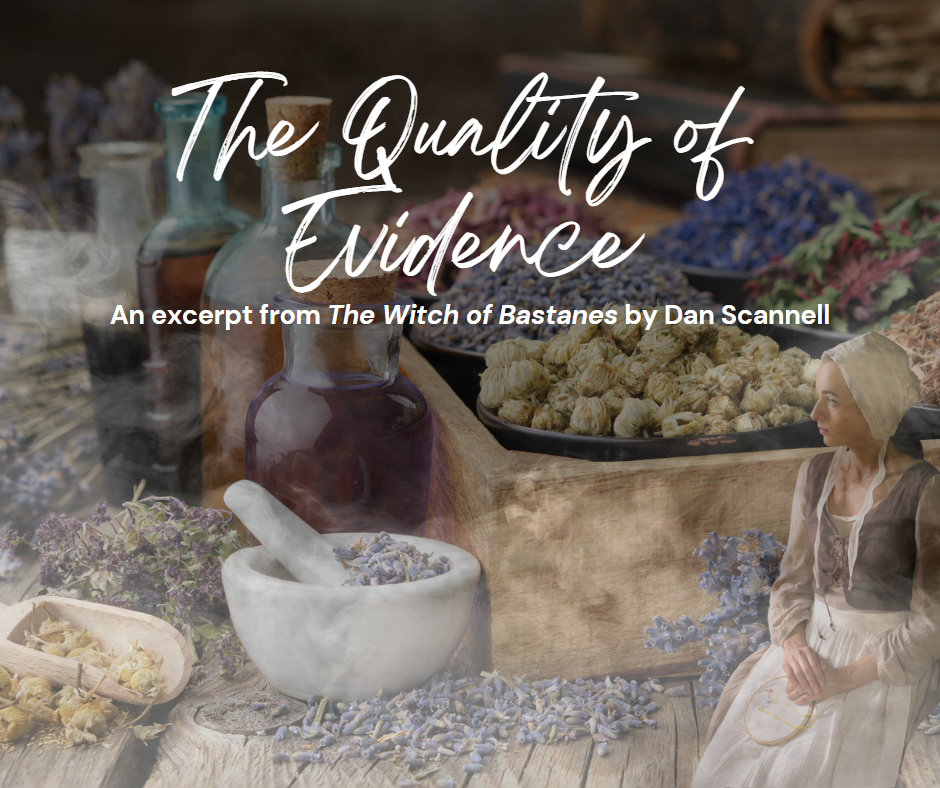The Devil is in the Details
- Daniel Scannell
- Nov 17, 2022
- 3 min read

“How did we get into this in the first place?” asked the priest.
“As best as I can figure it, a bunch of people with torches in their hands showed up in front of Abbe Antoine’s rectory, demanding that he do something about this stranger, this woman, who had gotten some people’s noses out of joint. They couldn’t seem to agree on who or what they thought she was, but they were certain that whatever she may or may not have done fell under the jurisdiction of the Church. Abbe Antoine, at a total loss as to what to do, organized a prayer service to ward off evil spirits and sent an urgent messenger to me. I had no choice but to place her under arrest and convene a bishop’s court of inquiry.”
Paire Miquel looked puzzled. “But surely, this sort of thing has happened before. What made you so reluctant to proceed with this case?”
“For one thing, the timing couldn’t be worse.” Bishop Raymond was grateful to have someone in whom he could confide. “The war was devastating for both civil and ecclesiastical authorities down here. Everyone, at one time or another, was under suspicion for heresy or for just being in the way of some ambitious northerner. Even now, in peacetime, we know we are being watched for the smallest indication that we are disloyal or unorthodox in our religious practices. Abbe Antoine has long tolerated the sporadic use of other, non-Roman liturgical rites, such as Mme. Balterra’s Hispanic Rite, because he was of such little consequence as to be beneath the notice of the new lords. I supported him with my silence, secure in the belief that he was right, but when this case erupted, everything changed.”
“How would you normally have treated such disturbances?” The red-haired priest was trying to envision another outcome.
“Oh, ecclesiastical courts are notoriously lenient. Investigations usually conclude that the accusations amount to nothing. Even if someone is found guilty of something, the worst you could have expected of us was quick public penance. But most people have short memories. Most of the time, we drag things out until one of the parties dies or public interest is captured by something else. Then everything is forgotten, and we move on.”
“But this case is different…” Paire Miquel could see how quickly something like this could spin out of control.
“Indeed, it is,” replied Bishop Raymond. “The new count de Toulouse would not believe that I didn’t know what was going on in a small parish under my jurisdiction. I had to distance myself from Abbe Antoine, although I knew he had done nothing wrong. I had to give credence to all these charges and to pretend that there was something there when there wasn’t.”
“But do you have the stomach to sacrifice a woman’s freedom, and perhaps her life, to maintain the status quo?”
“I pray to God that I shall never find out! What do you want me to do about her shackles?”
“Have them removed,” Paire Miquel replied. “At least in her cell, where nobody sees her but the gaolers and me, she can walk free. The gaolers can be bribed for their silence. When you bring her out to court, have the chains put back on, but gently.”
Bishop Raimond agreed, and Paire Miquel went about his task with renewed determination.
If you enjoy this passage, my book is available on Amazon.com and wherever books are sold.





Comments